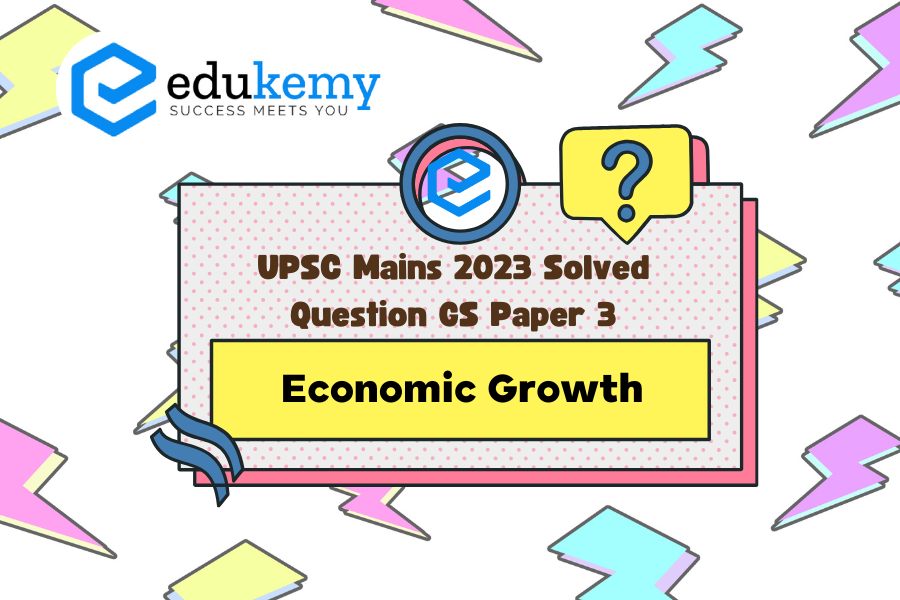Faster economic growth hinges significantly on bolstering the share of the manufacturing sector in GDP, with a particular emphasis on Micro, Small, and Medium Enterprises (MSMEs). These entities form the backbone of many economies, contributing significantly to employment generation, innovation, and overall economic development. Present government policies aimed at fostering this growth vary in effectiveness and execution across different regions. Some initiatives include easing regulatory burdens, providing financial incentives, and enhancing access to markets and technology for MSMEs. Additionally, initiatives such as the “Make in India” campaign have been launched to encourage domestic manufacturing and attract foreign investment. However, challenges persist, including bureaucratic red tape, infrastructure deficiencies, and limited access to credit. While the government has taken steps to address these issues, more concerted efforts are needed to ensure a conducive environment for MSMEs to thrive and contribute meaningfully to economic growth. Strengthening policy frameworks, enhancing infrastructure, and promoting skill development are crucial steps towards realizing the full potential of the manufacturing sector in driving economic expansion.
Answer:
Introduction:
As per the 2023 manufacturing industry outlook, the manufacturing sector plays a significant role in India’s GDP, contributing approximately 17% in 2022. Notably, MSMEs constitute roughly 40% of the manufacturing sector, playing a pivotal role in driving economic growth, employment opportunities, and the expansion of exports.
Body:
The connection between faster economic growth, manufacturing, and MSMEs:
- Rural Development: The manufacturing sector plays a pivotal role in advancing rural development. Initiatives like the establishment of agro-based industries and Rural Self Employment Training Institutes (RSETIs) are empowering rural areas economically by fostering entrepreneurship.
- Economic Resilience: Micro, small and medium Enterprises (MSMEs) are the growth accelerators of the Indian economy, contributing significantly to the country’s gross domestic product (GDP).
- Employment Generation: In India, the manufacturing sector has created approximately 11 crore jobs, as reported by the Ministry of MSMEs. Tailoring units, handicraft businesses, and small manufacturing units are prime examples where significant employment opportunities are generated.
- Innovation: Companies like Flipkart and Zoho, which began as small enterprises, have introduced pioneering solutions in the fields of e-commerce and software development, respectively.
- Exports: In India, they account for approximately 48% of total exports, particularly in products such as jewelry, handloom textiles, and spices, which enjoy substantial global demand.
Present policies of the Government to boost the manufacturing sector:
- Make in India Initiative: The Indian government’s “Make in India” campaign aims to boost domestic manufacturing and attract foreign direct investment. For instance, the recent ban on laptop imports promotes local laptop manufacturing.
- Ease of Doing Business: Enabling MSMEs to reach government buyers, expanding their market reach, and promoting transparent procurement, significantly boosting the MSME sector. Initiatives like GST, IBC, and SWIFT simplify processes for MSMEs, enhancing operational convenience.
- Infrastructure Development: Infrastructure projects like Bharatmala, and Sagarmala, and industrial corridors, such as DMIC, promote economic growth.
- Production-Linked Incentive (PLI) Scheme: The PLI scheme incentivizes global manufacturers to set up production units in India, enhancing domestic manufacturing and global competitiveness.
- Raising and Accelerating MSME Performance (RAMP) Program: Launched in 2023-24 with a Rs. 6,000 crore budget, RAMP provides financial and technical assistance to improve MSMEs’ quality, technology adoption, innovation, and market reach.
- Export Promotion: The government offers export incentives and streamlines export procedures, e.g., duty-free import of capital goods for export production through schemes like EPCG.
- Startup India: Since its launch, it has nurtured startups through fiscal incentives and a robust ecosystem, fostering entrepreneurship. Notably, Zomato, a food delivery service, flourished under this initiative.

Challenges Faced by These Policies:
- Delayed Payments: Even with MSME Samadhan in place, many MSMEs continue to struggle with payment delays. A recent report reveals that approximately Rs 10.7 lakh crore remains unpaid to MSMEs in India, amounting to 6% of India’s GVA for FY 2020-21.
- GST Complications: The GST, despite unifying the tax regime, introduced complexities. Many MSMEs found the transition challenging due to technological hurdles and understanding tax slabs.
- Skill Training Mismatch: While Skill India has trained many, there’s often a disconnect between industry requirements and the skills provided. For instance, the textile industry frequently faces a shortage of workers trained in modern machinery despite numerous training programs.
- Limited Scope in Startup India: The Startup India initiative, though successful, has been criticized for its tech-centric focus, neglecting traditional businesses that also need support and incentives.
Way Forward:
- Enhancing Credit Accessibility: The Government of India and banks must collaborate to establish plans and measures for expanding easy and hassle-free access to credit, as exemplified by the MUDRA (Micro Units Development & Refinance Agency Ltd.) bank.
- Strengthening Regulatory Reforms: The RBI should implement stringent norms for Non-Performing Assets (NPAs) to deter loan defaulters and incentivize responsible borrowing.
- Fostering Research and Development: Encouraging research and development efforts focused on innovative production methods and service delivery is essential.
- GST Facilitation Centres: These centres would assist MSMEs in understanding and adapting to the GST framework, with trained personnel providing necessary assistance.
- Investing in Human Capital: Prioritising skill development and training for MSME workers is a critical step to enhance the sector’s productivity.
Conclusion:
Hence, the MSME sector serves as the foundation of the Indian economy, playing a crucial role in shielding it from global economic uncertainties and challenges. It is essential to acknowledge and support these indigenous businesses and enterprises.
In case you still have your doubts, contact us on 9811333901.
For UPSC Prelims Resources, Click here
For Daily Updates and Study Material:
Join our Telegram Channel – Edukemy for IAS
- 1. Learn through Videos – here
- 2. Be Exam Ready by Practicing Daily MCQs – here
- 3. Daily Newsletter – Get all your Current Affairs Covered – here
- 4. Mains Answer Writing Practice – here


